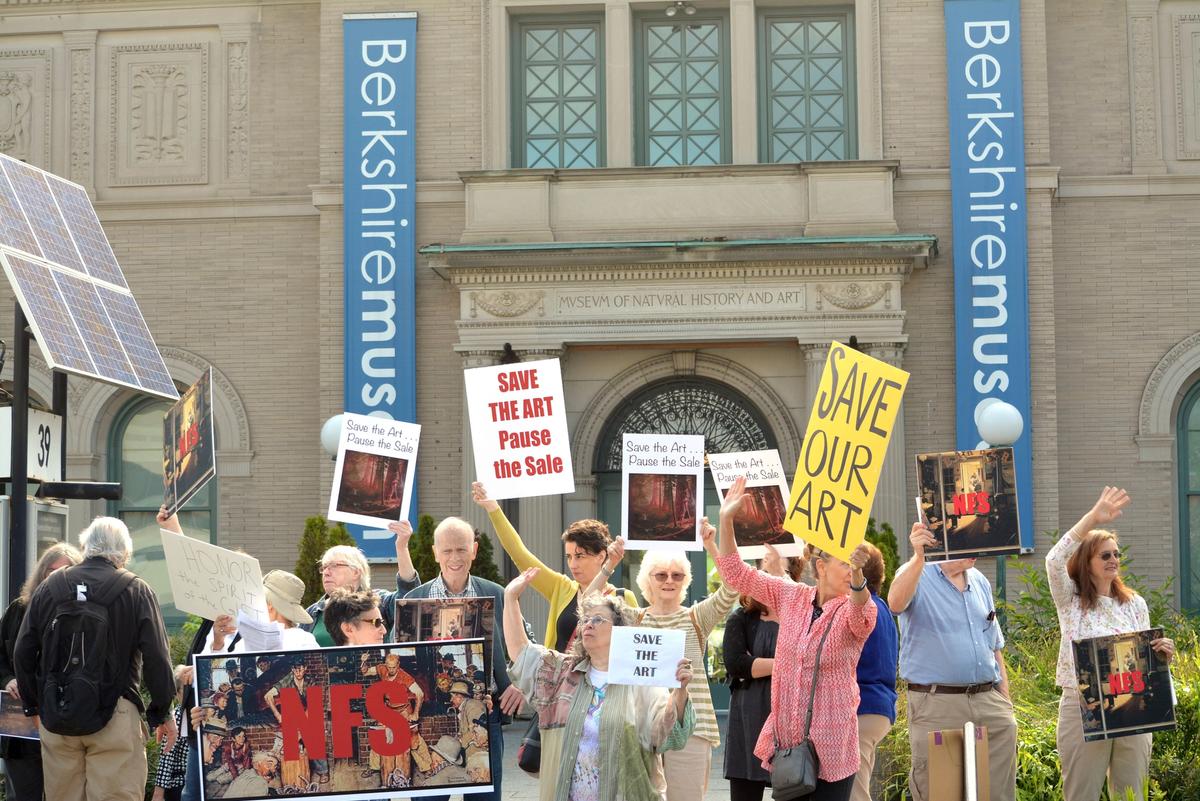UPDATE: Late Friday night, a Massachusetts Appeals Court judge granted a preliminary injunction to block the Berkshire Museum from selling art from its collection at Sotheby's on Monday, 13 November. Justice Joseph Trainor found that "the risk of irreparable harm" weighed in the favour of the petitioners, including Rockwell’s sons, Berkshire Museum members and the Attorney General's Office (AGO), which recently asked to be added as a plaintiff to the cases. The injunction expires on 11 December, but the judge has given the AGO the option to extend the injunction until its investigation into the deaccessioning can be completed.
The decision comes just hours after the Massachusetts Attorney General’s Office (AGO) appealed a judge’s ruling from earlier this week that would have allowed the Berkshire Museum to go forward with the sale. Sotheby's auction was due to include valuable works from the museum's collection, including a pair of canvases by Norman Rockwell, Shuffleton’s Barbershop (1950) and Blacksmith’s Boy—Heel and Toe (1940), which the artist gave to the museum. The AGO asked the Appeals Court to halt the auction, stating: “There is significant potential for irreparable harm should this sale happen before the appeal is decided. If these objects are sold, there likely will be little if any opportunity to get them back.”
The AGO’s appeal cited an “abuse of discretion through clear errors of law” in Superior Court Judge John Agostini’s earlier decision to reject two motions brought by opponents of the sale. The filing states the judge misunderstood the museum’s obligations under the laws governing charitable trusts and its “duties of care”, which the AGO says the museum violated by setting unreasonable financial goals that were inconsistent with its purpose as a public art museum. This has led to the “severance of its relationship with prominent cultural institutions and associations... inability to secure future loans of art and shared exhibitions; damage to its donor relationships; and irreparable harm to its ability to meet the art component of its mission.”
Foley Hoag, the lawyer who represents Norman Rockwell’s family in the litigation, supported the appeal in a statement, repeating that the sale must be delayed immediately or else “the works will likely vanish into private collections outside of this jurisdiction, with no apparent mechanism to recover them should the Superior Court’s order later be reversed”.
A lawyer for the Berkshire Museum, William Lee, said that he expects a “swift resolution of this matter in Appeals Court. We are disappointed that the Attorney General has decided to continue legal action that threatens the future of the Berkshire Museum," reads the lawyer's statement, "particularly after a very clear legal decision rejected the arguments the Attorney General repeats in this misguided appeal”.
Opponents of the sale, including the citizens' group Save the Art—Save the Museum, which had planned dual protests on Saturday, 11 November, in front of both the Berkshire Museum in Pittsfield and Sotheby’s headquarters on 72nd Street and York Avenue in Manhattan, celebrated Justice Trainor's decision on social media.


